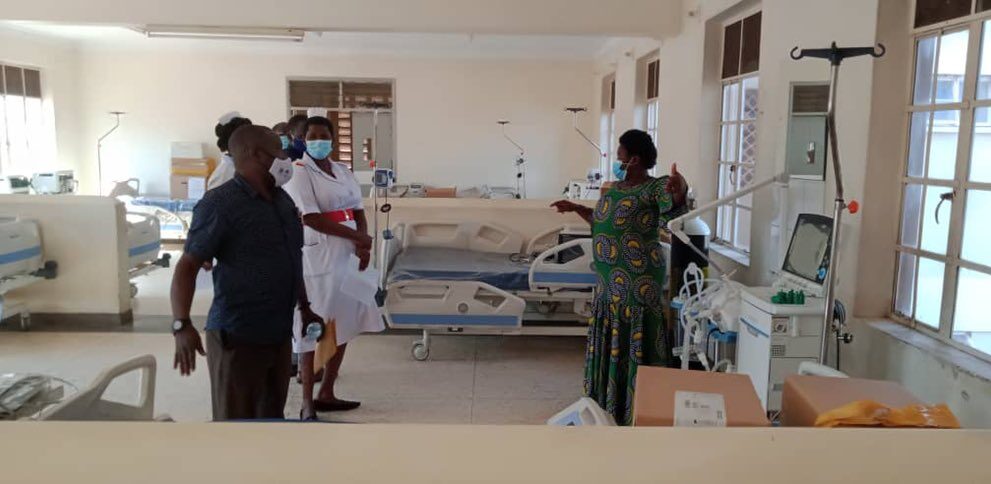Arua Hospital’s HDU Thrives with National Grid Connection and UNICEF Support

Arua Regional Referral Hospital’s High Dependency Unit has improved patient care following its connection to the national electricity grid and support from UNICEF and SIDA. The unit now admits 30 critical patients monthly, successfully managing life-threatening conditions without fatalities.
Arua Regional Referral Hospital’s High Dependency Unit (HDU) has renewed hope following its recent connection to the national electricity grid, complemented by support from UNICEF.
An HDU is a specialized ward for patients requiring more intensive observation, treatment, and nursing care than can be provided in a general ward, though not to the extent of an intensive care unit (ICU).
For years, the hospital faced significant challenges due to poor infrastructure, limited equipment, and an unreliable power supply, all of which hindered the provision of specialized care. However, in 2021, through support from the Swedish International Development Cooperation Agency (SIDA), UNICEF initiated an intervention under the District Health Systems Strengthening Project, in partnership with AVSI Foundation. This initiative aimed to establish HDUs across key hospitals in the West Nile region, including Arua Regional Referral Hospital.
During a recent visit by a UNICEF delegation, Dr. Emmanuel Odar, a senior consultant and gynecologist at the hospital, highlighted the achievements of the HDU over the past three years. He noted that the unit now admits an average of 30 critical patients monthly, thanks to the installation of six fully equipped HDU beds provided by UNICEF as part of the refurbishment effort.
Dr. Odar further outlined the key conditions managed by the unit, such as postpartum or obstetric hemorrhage, pregnancy-induced hypertension leading to pre-eclampsia, and peripheral sepsis. He reported that these cases have been effectively handled without any fatalities.
“There are six beds, each equipped with monitoring machines. Once patients show signs of improvement, we transfer them to other wards, which has greatly benefited many mothers,” Dr. Odar explained.
He acknowledged the challenges the unit still faces, including occasional shortages of personnel and oxygen. However, he emphasized that the power outages previously experienced are no longer an issue, thanks to the hospital’s recent connection to the national electricity grid.
The project has resulted in the establishment of nine fully operational HDUs across several health facilities, including Arua Regional Referral Hospital, St. Luke Hospital Angal, Nebbi General Hospital, Moyo General Hospital, Adjumani General Hospital, Maracha Hospital, Kuluva Hospital, Koboko General Hospital, and Nyapea Hospital.
The 2021 Annual Maternal and Perinatal Death Surveillance and Response report by the Ministry of Health highlighted significant delays in the provision of maternal care in the West Nile region. While delays in mothers seeking care were identified as a major cause of perinatal deaths, the report also emphasized that delays in providing care at healthcare facilities were a leading contributor to these fatalities nationwide.
The addition of 34 HDU beds across the region, complete with essential emergency supplies such as oxygen cylinders, concentrators, blood pressure and temperature monitors, and suction machines, represents a significant step forward.
These units are also equipped with essential amenities, including power outlets to ensure equipment functionality, terrazzo flooring, sanitation facilities (sinks and washrooms), medicine cabinets, warm blankets, bed sheets, a nursing station, and a monitoring room—ensuring the highest standards of care for critical patients.







